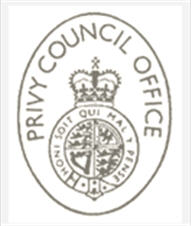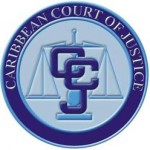I am frankly ashamed when I see the list of Commonwealth counties that still cling to that jurisdiction (the Privy Council). Even more so to know it is a list dominated by the Caribbean.
Former Commonwealth secretary general, Sir Shridath Ramphal, made this instructive admission during an address at the Inaugural Conference of the Caribbean Association of Judicial Officers on June 25, 2009.
 But, frankly, leaders of Caribbean Commonwealth countries (CARICOM) – who still blithely subject their citizens to the jurisdiction of their former colonial masters – are the ones who should be ashamed. After all, relying on the UK’s Judicial Committee of the Privy Council as their court of last resort makes a mockery of the national independence they all proclaim so zealously.
But, frankly, leaders of Caribbean Commonwealth countries (CARICOM) – who still blithely subject their citizens to the jurisdiction of their former colonial masters – are the ones who should be ashamed. After all, relying on the UK’s Judicial Committee of the Privy Council as their court of last resort makes a mockery of the national independence they all proclaim so zealously.
 Of course, the cravenness of CARICOM leaders has become such that talking about it incites more contemptuous laughter than jokes about lawyers. And there’s probably no greater monument to their cravenness than the Caribbean Court of Justice (CCJ).
Of course, the cravenness of CARICOM leaders has become such that talking about it incites more contemptuous laughter than jokes about lawyers. And there’s probably no greater monument to their cravenness than the Caribbean Court of Justice (CCJ).
As it happened, CARICOM established the CCJ in 2001 to replace the Privy Council. This duly codified the natural desire of newly independent member states to cut the final umbilical cord of British colonialism.
Therefore, it is stupefying that only three of them, namely Barbados, Guyana and Belize, have actually severed this cord and embraced the untethered judicial independence that should have attended their political independence. Indeed, given that enlightened Jamaicans proposed this liberating cut as early as 1970, the fact that even they do not recognize the CCJ’s jurisdiction reflects an habitual suckling on the colonial tit that is as judicially infantile as it is politically hypocritical.
 But nothing demonstrates how utterly inured to shame CARICOM leaders are in this respect than the fact that even a paternalistic public spanking by Lord Nicholas Phillips, president of the Supreme Court of the United Kingdom, did not offend their regional or national pride.
But nothing demonstrates how utterly inured to shame CARICOM leaders are in this respect than the fact that even a paternalistic public spanking by Lord Nicholas Phillips, president of the Supreme Court of the United Kingdom, did not offend their regional or national pride.
Specifically, in a September 21, 2009 interview with the Financial Times, Lord Phillips lamented that the five British judges who sit on the Privy Council spend 40 percent of their time adjudicating cases from the former colonies. But he punctuated this lamentation with unbridled contempt when he said that he wished these now-independent countries:
… would stop using the Privy Council and set up their own final courts of appeal instead.
You’d think Lord Phillips’s admonition would chasten any self-respecting Caribbean leader. And, that this in turn would compel that leader to relieve Britain of this ‘white man’s burden,’ which is plainly anachronistic, untenable, and unfair. Not to mention that Lord Phillips is only admonishing Caribbean leaders to do what they have known for almost 40 years they should, indeed must, do.
 Yet I fear it will take far more than paternal rebukes to get our leaders to do the right thing. And nothing indicates this quite like the fatuous and parasitic justification no less a person than the president of the Bahamas Bar Association, Ruth Bowe-Darville, offered recently for clinging to the Privy Council:
Yet I fear it will take far more than paternal rebukes to get our leaders to do the right thing. And nothing indicates this quite like the fatuous and parasitic justification no less a person than the president of the Bahamas Bar Association, Ruth Bowe-Darville, offered recently for clinging to the Privy Council:
Criminally, it’s one thing. Civilly, when you’re dealing with financial matters and the economic impact of it, litigants who come before our court, they need that assurance that there is some place of last resort that is independent and seen to be independent. Litigants who come before us with multi-million-dollar cases and they see us as a great financial center, they need the assurance that the Privy Council is there.
(Nassau Guardian, June 23, 2011)
Hell, if not her national pride, you’d think Bowe-Darville’s professional pride would be offended at the mere suggestion that The Bahamas, which touts itself as a global financial center, does not have a judiciary that can provide litigants – even in multi-million dollar cases – all of the assurances of competency, impartiality, and independence they need. Alas it seems even she is inured to shame.
Meanwhile, just to show how fraught with confusion, conflicts, and contradictions this debate is, consider this:
 At the same time as Bowe-Darville was arguing that The Bahamas must retain the Privy Council to preserve the country’s financial viability, renowned Bishop Simeon Hall, who chaired the government-appointed National Advisory Council on Crime, was arguing that The Bahamas must abandon it to preserve its sense of criminal justice.
At the same time as Bowe-Darville was arguing that The Bahamas must retain the Privy Council to preserve the country’s financial viability, renowned Bishop Simeon Hall, who chaired the government-appointed National Advisory Council on Crime, was arguing that The Bahamas must abandon it to preserve its sense of criminal justice.
You see, Bishop Hall believes justice mandates that certain convicted murderers receive the death penalty; whereas, the Privy Council has developed an institutional aversion to upholding the death penalty on appeal for any murderer, no matter how depraved.
Now add to this the fact that some CARICOM countries, including Jamaica, are eschewing the CCJ because it has developed an institutional proclivity for upholding the death penalty on appeal for any murderer, no matter how sympathetic.
Which of course means that Bishop Hall’s Council should have recommended The Bahamas join this hanging court; except that The Bahamas has so little regard for the CCJ that it did not even bother to sign the agreement establishing it in 2001 like the other 12 CARICOM countries did. (Haiti was admitted to CARICOM in 2002 but it too has yet to join the CCJ.)
What a jurisprudential mess!
Mind you, this is not to say that I think the CCJ is an ideal alternative. In fact, the jingoistic politics that have made a dysfunctional shambles of every significant CARICOM initiative clearly militate against the CCJ ever gaining the regional acceptance and respect the Privy Council enjoys.
This is why I maintain that the only viable alternative is for each CARICOM country to simply establish its own court of last resort. Such a court, after all, is a hallmark of any independent nation. Indeed, this is precisely what the Jamaican prime minister proposed to do for his country earlier this year.
In any case, it is immature, irresponsible and, frankly, niggardly for CARICOM leaders to continue relying on the Privy Council to fulfill this essential function of national self-determination.
NOTE: Bishop Simeon Hall is a distant relative and should be distinguished from my brother, the equally renowned Bishop Joseph Hall, who quite properly is more concerned about saving sinners than executing them.
Related commentaries:
No more privy council…